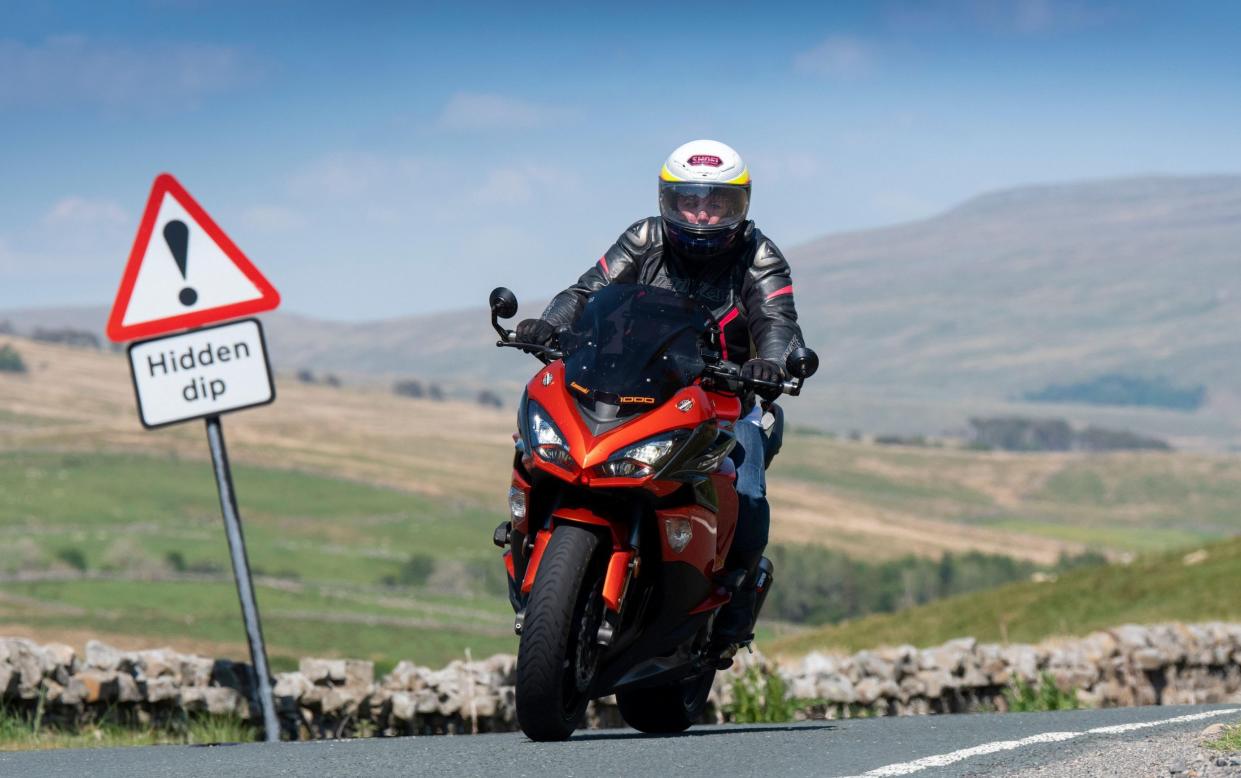Motorbikes face net zero ban

The sale of new petrol-fuelled motorcycles is set to be banned from 2040, under plans due to be announced by ministers as part of the Government’s net zero crackdown.
The move would affect all vehicles classed as “L3” and upwards, including scooters and light, medium and higher-powered motorcycles. There are around 1.3 million motorcycles registered in the UK.
It is expected to be revealed soon, according to industry sources, although it is not clear whether Downing Street has signed off on the policy yet.
The change would also be accompanied by a plan to ban sales of new petrol-fuelled mopeds earlier, from 2030.
That reflects the already-high numbers of electric mopeds being sold. They accounted for roughly half of UK moped registrations last year.
By contrast, the market for electric motorcycles is far less developed and represented less than 2pc of total sales in 2023.
They also suffer from some of the same “range anxiety” issues as electric cars, with many e-motorcycles currently limited to ranges of less than 100 miles while not all are compatible by default with electric car charging stations.
The Motorcycle Action Group, which represents riders, has claimed banning new petrol motorcycle sales is “unworkable” and will “terminate most British motorcycle manufacturing” if implemented.
The Government insists no final decision has been taken on banning sales of petrol motorcycles.
But the Department for Transport is taking steps to make low-powered electric motorcycles a more attractive transport option and views them as “dynamic, efficient and affordable… and too often overlooked”.
Last month ministers extended the grant for plug-in electric motorcycles, under which riders can get up to £500 off models costing less than £10,000, until April next year.
Ministers are also consulting on changes that would give motorcyclists use of bus lanes across the country, something that currently varies by local authority area.
However, banning sales of new petrol motorcycles from 2040 would represent a climbdown.
In a consultation published two years ago, the Department for Transport asked companies to comment on either a 2030 or 2035 ban for motorcycles and mopeds. A ban in 2035 would have been in line with the phasing out of sales of new petrol cars.
But while cars and taxis accounted for 57pc of the UK’s transport-related carbon emissions in 2021, motorcycles and mopeds represented just 0.5pc.
The Motorcycle Industry Association had previously warned that phasing out petrol-fuelled motorcycles by 2035 was “unrealistic” and could cause some manufacturers to “review their place in the UK market”.
Commenting on the proposals last year, Tony Campbell, the association’s chief executive, told Motorcycle News: “If you get it wrong, you could kill us.”
Asked about the potential climbdown on Friday, a spokesman for the group said: “We cannot comment on speculation but note that the Government has said it will be publishing the outcome of the consultation imminently.”
A spokesman for the Department for Transport said: “An increasing number of riders are choosing electric motorcycles and mopeds, including from British manufacturers like Maeving.
“While we are committed to transitioning away from petrol and diesel engines, no decision has been taken on the end sale for new motorbikes and mopeds, we continue to engage with the industry on the matter.”
Guy Opperman, the roads minister, added: “Our Plan for Drivers is not just improving journeys for car users, but also motorcyclists, who have sometimes been overlooked.
“We’re getting on and delivering our plan to make life for drivers - and motorbike riders alike - better, fairer and cheaper, and I am glad the consultation has already seen such a significant response.”

